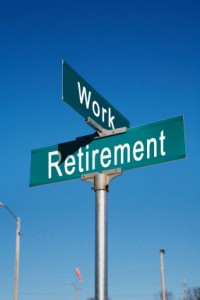 Ok, this is a question that everyone wants to know the answer to. Do you have enough for retirement? The answer is different for every person, since it depends on their financial situation, their pension plan if they have one, and their savings in registered plans and nonregistered plans, and whether they own their own house or not.
Ok, this is a question that everyone wants to know the answer to. Do you have enough for retirement? The answer is different for every person, since it depends on their financial situation, their pension plan if they have one, and their savings in registered plans and nonregistered plans, and whether they own their own house or not.
Let’s assume you are 60 and thinking about retirement and wondering if you have enough savings set aside. To start with if you are 60 today and in relatively good health, there is a good chance you will live for another 30 years. If you work to age 65, then you will have 25 years that you will need to live on your retirement funds, pension, and social security benefits.
Average Account Balances
According to recent studies, consumers in their 60s had an average account balance of $144,000 at the end of 2009 savings. This is a very low number and may not take into account savings in non-registered plans, homes, cottages, etc.
If you are married and your spouse also has some savings, then you might be a bit better off, so before you get really paranoid about retirement savings, make sure you take into account these other factors. Where will your income come from? Here is a list of items to consider for both you and your spouse:
- Company pension
- Social security
- Registered plans ( 401k’s, RRSP, etc)
- Non registered savings
- Sale of cottages, 2nd homes, etc
- Sale of investment properties
- part-time jobs
Complete your own inventory to assess what you may have in terms of annual income based on the list above. If we missed some, please let us know by leaving a comment on the blog at the end of this post.
If you find that you do not have enough savings and/or income, here are several steps you can take to begin rectifying the problem. Note that you are starting very late if you are 60, but better than not at all, right?
Do You Have Enough for Retirement – Build a bigger nest egg
If you are in your 60s and all you’ve got saved is $200,000 in a registered plan, you may not have enough funds to live on.
Using a common rule-of-thumb withdrawal rate, you would withdraw 4% of your $200,000 nest egg in the first year of retirement, or $8,000. That amount is likely to be inadequate. If you do not have other sources, then this amount is not enough and you really do not want to touch your principle if you can avoid it. What to do?
Reducing consumption now and saving more is the only real answer we can give. This is all about your personal comfort and quality of life during retirement and it is important that you take control of it now to try to make some level of quality of life work for you that is acceptable.
The rule of thumb currently is that you need about 30 times in assets of the initial withdrawals during the first year of retirement. For example, if you need $50,000 per year indexed to inflation starting at age 65 until age 95, then you need $1,500,000 in your portfolio at age 65. This is a far cry from the $200,000 average savings that many people have. If you can reduce the $50,000 by accounting for pension, social security, and other income, the amount of savings you will need will decrease accordingly.
Check your asset allocation
It is time to be conservative with your investments and focus on generating income from your investments. You cannot risk investing in speculative stocks and you need the income. Triple A bonds and blue chip stocks with a history of paying their dividends and increasing their dividends year over year are good things to consider.
Diversify your savings. Do not put all f your savings in one investment and do not chase that too good to be a true, sounding investment. You cannot afford to lose everything in something that is very risky. Speak to several advisers and form your own opinion. Don’t follow someone’s advice blindly.
If you are concerned about risk, GICs are the safest investment, however, they do not pay very much in terms of income. You will be able to sleep at night!
Find out what your limits are in terms of contributions to your retirement plan and contribute the maximum every year until retirement to maximize your savings for retirement.
Do You Have Enough for Retirement – Delay retirement
Now, this is an ugly thought, especially if you are planning to retire shortly. However, if you do not have savings and income, you may not have any alternative. Delaying retirement for several years can make a huge difference in terms of spending, savings, and your own well-being. You also delay the draw down on your savings as well which will benefit you over the life of your retirement.
Many people enjoy getting out every day to mingle with people and it gives them something to do.
Semi-retirement might also be an option for some folks. Working three days a week for example still generates some income. But also allows more time for you to explore your interests and spend time with the grand lids. It also keeps you sharp in terms of the business world as well. They say that you need to exercise the body as well as the mind to lead a fit life well into retirement.
Delay taking Social Security
Taking social security early comes with a price. Most plans as well as pension plans penalize the retiree by reducing the amount of money they pay out each year if they retire early. Every year you delay taking your pension or social security benefits will provide you with an increase in your payments, which can be a huge benefit in later years.
One last point to consider if you do plan to take your pension and social security early. If you are also planning to work, your taxes could claw back some of these benefits depending on how much you make.
Check with an investment adviser or pension specialist to assist you in any of these decisions.
 Almost everyone at some time in their lives wonders, how can I retire early? They might be having a tough day at work. Or perhaps they are envious of someone who is retired and the life they are able to leave. When you ask yourself this question, how can I retire early, the next step is critical. If you want to retire early, consumers need to put a plan in place and answer the following questions. Then they must work towards these goals to achieve their objective. Unless you are lucky enough to win the lottery, most of us will just have to work hard to make it happen.
Almost everyone at some time in their lives wonders, how can I retire early? They might be having a tough day at work. Or perhaps they are envious of someone who is retired and the life they are able to leave. When you ask yourself this question, how can I retire early, the next step is critical. If you want to retire early, consumers need to put a plan in place and answer the following questions. Then they must work towards these goals to achieve their objective. Unless you are lucky enough to win the lottery, most of us will just have to work hard to make it happen.




